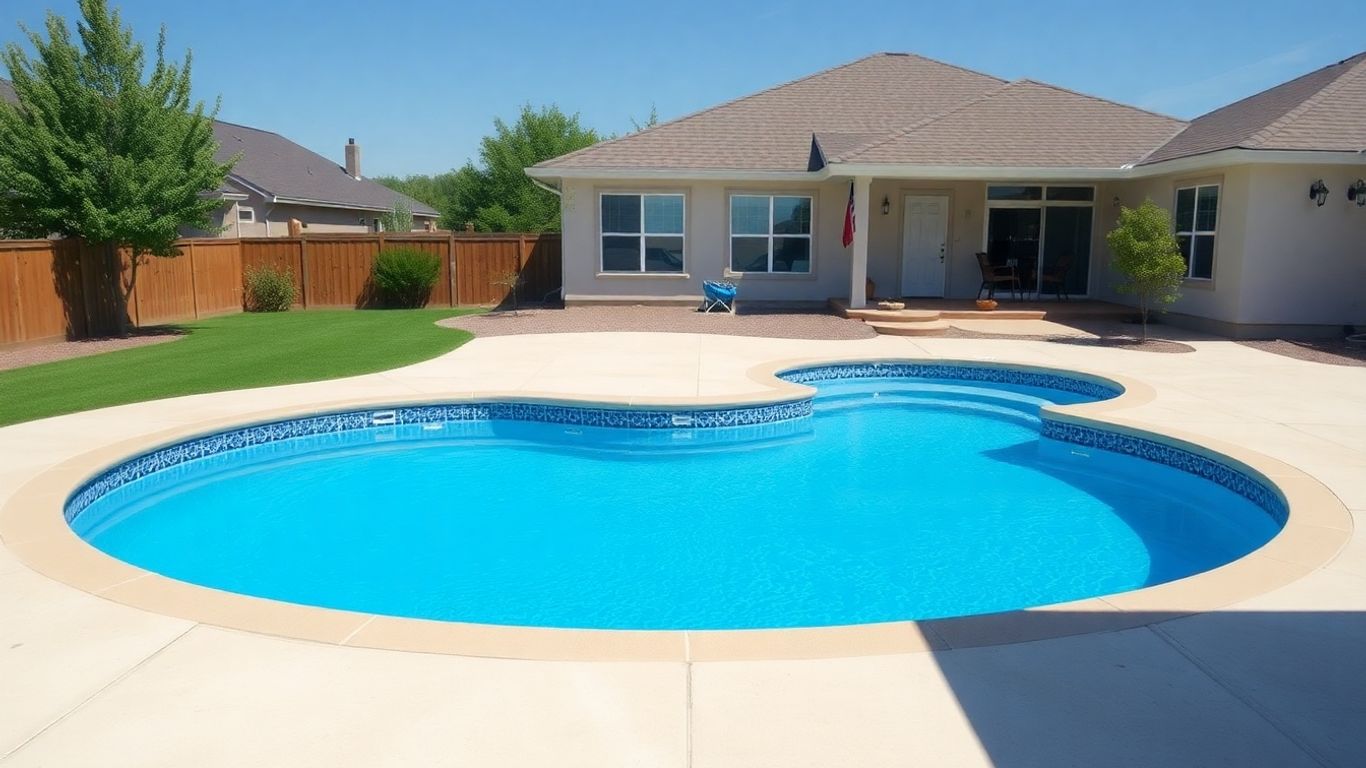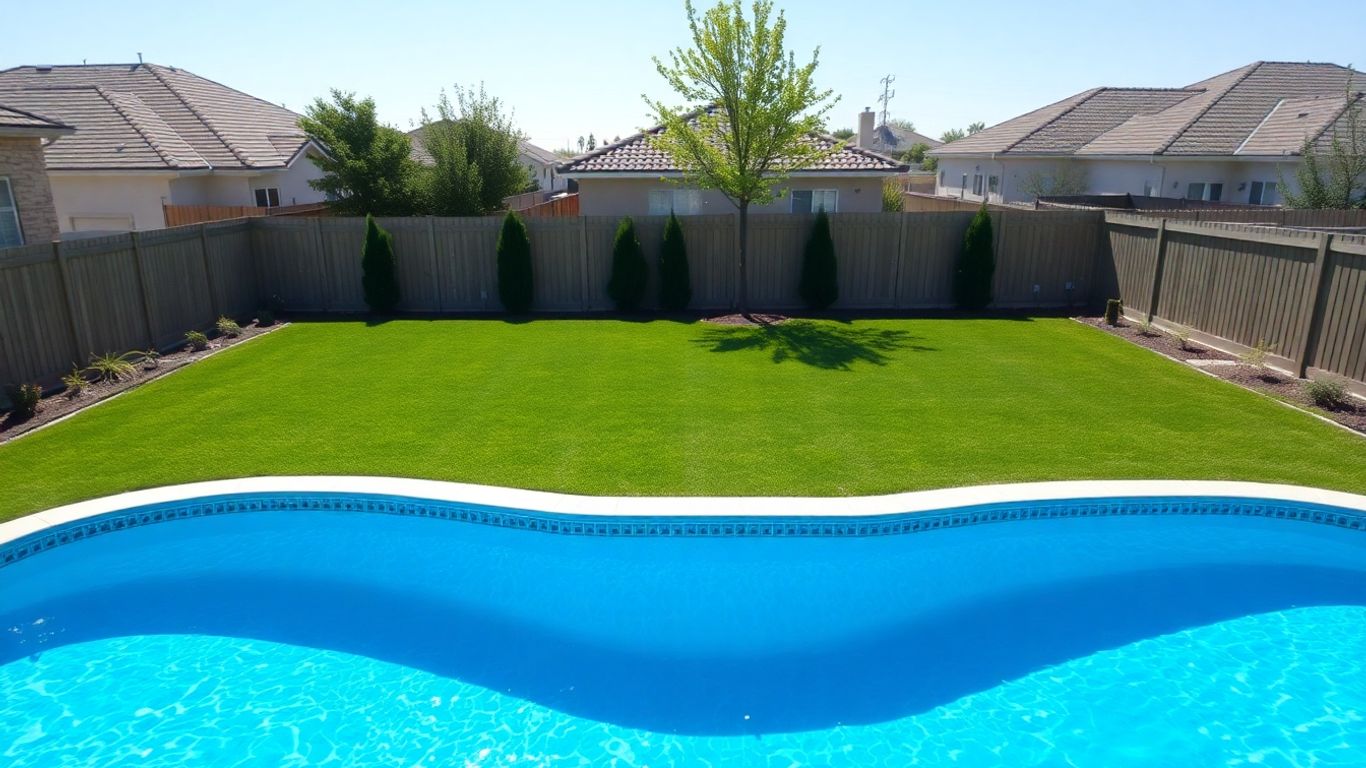Adding a swimming pool to your backyard in Ottawa is an exciting prospect for summer fun and relaxation. However, before starting, it’s essential to understand the city’s rules and regulations. Installing a pool without the proper City of Ottawa pool permit can lead to fines, forced removal, and complications with insurance or future property sales.
At KJ Landscape Design, we have helped many homeowners navigate the pool permit process, ensuring safe, legal, and beautiful backyard pool installations. This comprehensive guide provides all the information you need, including official requirements, application steps, and practical tips to avoid common mistakes.

Why You Need a Pool Permit in Ottawa
A pool permit is not just a formality; it ensures your pool installation is safe, legal, and compliant with local zoning bylaws and the Ontario Building Code. Obtaining a permit protects you, your family, and your neighbors by ensuring that your pool meets safety standards, such as fencing, proper setbacks, and safe electrical installations.
Without a permit, your pool installation could be considered illegal construction, and the city may issue fines or require removal. At KJ Landscape Design, we always recommend securing the permit before ordering materials or starting construction to avoid costly delays.
Understanding Pool Permit Requirements
The city evaluates multiple factors during a pool permit application, including location, fencing, drainage, electrical installations, and potential environmental considerations.
Pool Location and Setbacks
The pool’s location is critical. Ottawa requires specific setbacks from property lines, buildings, and other structures to prevent disputes and ensure safety. Homeowners should create a detailed site plan showing the pool placement, property lines, existing structures, and measurement of setbacks.
Pro Tip: If you’re unsure about measurements, a local surveyor or landscaper can help create a precise plan. KJ Landscape Design often assists clients with accurate site plans to ensure smooth permit approval.
Fencing and Safety Requirements
Fencing is a vital part of pool safety. According to Ottawa’s Pool Enclosure By-law 2013-39:
- Pools must be enclosed by a fence at least 1.2 meters (4 feet) high.
- Gates must be self-closing and self-latching.
- Fences must use durable, approved materials like metal, wood, or mesh.
Proper fencing not only complies with the law but also prevents accidents. Our team can design and install fences that meet bylaw requirements while complementing your backyard aesthetics.
Drainage Considerations
Managing pool water is more than a convenience; it’s a regulatory requirement. The city wants homeowners to have a clear drainage plan that prevents flooding neighboring properties or creating erosion issues. For example, directing overflow water toward a drainage swale or approved outlet can prevent future headaches.
Electrical and Plumbing Compliance
All pool-related electrical work must be performed by a licensed ESA-certified electrician. This includes pumps, lighting, and filtration systems. Proper grounding, wiring, and safety switches are required to meet Ontario safety standards.
Plumbing, including drainage and filtration, must also comply with city regulations to prevent water damage or environmental concerns. At KJ Landscape Design, we coordinate with licensed electricians and plumbers to ensure compliance and peace of mind.
Environmental and Other Approvals
Depending on your property location, additional approvals may be needed:
- Properties near watercourses or conservation areas may require Conservation Authority approvals.
- Heritage, environmental, or municipal restrictions may apply to certain neighborhoods.
Always check with the City of Ottawa’s building department early in your planning process to identify these requirements and avoid delays.

How to Apply for a Pool Permit in Ottawa
Applying for a pool permit is a multi-step process, and preparation is key. Here’s how to navigate it efficiently:
Prepare a Detailed Site Plan
Include pool location, property lines, setbacks, and existing structures. Show fence and gate placement clearly.
Document Construction Details
Include pool type (inground or above-ground), dimensions, depth, materials, and equipment.
Submit Fence and Gate Plans
Ensure compliance with City of Ottawa fencing regulations, including self-closing, self-latching gates.
Include Electrical and Plumbing Plans
Provide documentation showing that all work will be done by licensed professionals.
Complete the Official Application
Forms and applications are available on MyServiceOttawa. Permit fees are currently $241 (subject to change).
Schedule a Pre-Construction Meeting
Meet with a city inspector to review plans and discuss the inspection schedule.
Inspections and Record-Keeping
Inspections may include footing, plumbing, electrical, and final inspections. Keep copies of all approved plans, permits, and inspection reports.
Insider Tip: Our team at KJ Landscape Design guides clients through every step, helping them avoid common mistakes that can delay approvals.
Pool Electricians in Ottawa
Electrical work is crucial for safety and compliance. A licensed ESA-certified electrician ensures that wiring, pumps, and lighting systems are installed correctly. Hiring a professional reduces the risks of electrical hazards and ensures your pool passes inspection.
Ottawa Pool Fence Regulations
Fencing is a legal requirement and a safety necessity. Following Ottawa’s Pool Enclosure By-law 2013-39, fences must:
- Be at least 1.2 meters (4 feet) high
- Include self-closing, self-latching gates
- Use approved durable materials
Non-compliant fences can delay permit approval and pose safety risks. KJ Landscape Design provides custom fencing solutions that meet city standards and enhance backyard aesthetics.
Filling or Removing a Pool
Even if you plan to fill in or remove a pool, a demolition permit may be required. Doing this without authorization can result in fines or compliance issues. Always check with the City of Ottawa before removing or filling a pool.
Consequences of Skipping a Pool Permit
Skipping the permit process carries serious consequences:
- The city can issue an order to remove the pool
- Significant fines may be imposed
- Insurance may not cover accidents related to unpermitted pools
- Unpermitted work complicates property resale and future permits
Obtaining a permit ensures your pool is safe, legal, and protected.
Conclusion
Installing a pool in Ottawa is a rewarding project, but it comes with responsibilities. By following this guide, consulting official Ottawa resources, and working with licensed professionals, homeowners can navigate the permit process confidently. Proper planning ensures your pool is safe, legal, and enjoyable for years to come.
At KJ Landscape Design, we help Ottawa homeowners through every step—from site planning and fence installation to liaising with inspectors—making sure your backyard pool project is smooth and worry-free.
Frequently Asked Questions (FAQ)
Do I need a permit for a pool in Ottawa?
Yes, all permanent and most temporary pools require a permit to ensure safety and compliance.
What does Ottawa check during a pool permit application?
The city reviews your site plan, fence compliance, setbacks, electrical and plumbing plans, and zoning adherence.
Where can I find the official checklist for pool permits?
The official checklist and forms are available on Ottawa.ca.
Who should I contact for electrical requirements?
Contact the Electrical Safety Authority (ESA) to ensure all pool electrical work is certified.
Are additional approvals required?
Depending on the property location, approvals from conservation authorities or other municipal departments may be necessary.

